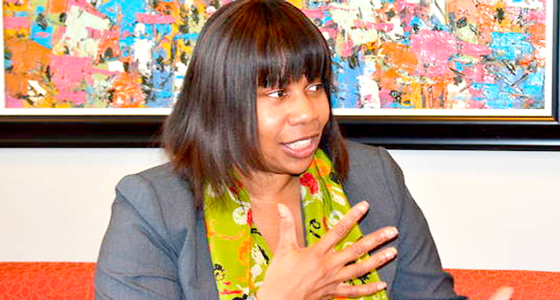
Study on gender diversity on boards launched
A study on Women on Boards (WoBs) of corporate and public institutions in Ghana has suggested that companies that have more gender-balanced boards tend to perform better.
In sales growth, high-performing firms were associated with higher GD than low-performing firms.
These provide support for the decision-making perspective that suggests a positive relationship between gender diversity and firm performance, taking into consideration the various factors that enhance decision- making.
The study, titled 'Gender Diversity in Ghanaian Boardrooms’, launched in Accra in October 2016, was an initiative of the Ghana Corporate Governance Programme of the International Finance Corporation (IFC), a member of the World Bank Group, in partnership with the Swiss Secretariat for Economic Affairs (SECO), and conducted by the University of Ghana Business School (UGBS).
Advertisement
It mainly focused on generating a balanced and objective analysis of the issues surrounding women in the boardroom to ascertain the business case for having females on boards in Ghana.
Some findings
It revealed that the proportion of female to total board members generally ranged from seven to 25 per cent.
It showed that 24.05 per cent of the sampled boards
Also, 49.37 per cent of the WoBs were non-executive directors and only 6.49 per cent of organisations have females on boards as chairs.
Presenting the findings during the launch of the report in Accra, the lead researcher, Dr Elikplimi Komla Agbloyor, noted that women formed 50 per cent of the population in Africa, yet were limited on boards.
He noted that unlisted firms exhibited higher GD compared with listed firms and that State-Owned Enterprises (SOEs) had higher GD, compared with other ownership types, and cited capacity, experience, academic qualification and social connections was determinants of board diversity.
Challenges, prospects and experiences
Dr Agbloyor said that generally, women who served on boards were satisfied with the board experience and these women do not experience discrimination, although there was a male dominance on boards.
However, they are faced with challenges on the boards of organisations in Ghana, with about 80 per cent of respondents saying that board activities affected their family responsibilities.
“There is also the lack of recognition which stems from male dominance on boards. Some women, although qualified to be on boards, deliberately shy away. This could be because some women do not want to be in the spotlight amid males, as the Ghanaian culture tends to tag assertive women as disrespectful,” he stated.
IFC model
The IFC Country Manager, Ms Ronke-Amoni Ogunsulire, said the IFC, having recognised that addressing gender disparity and increasing participation of women on corporate boards and in other decision-making positions added value economically and socially, took a decision to promote GD and inclusion on the boards of its investee companies.
“Currently, women make up 29 per cent of the directors who sit on IFC investee company boards worldwide, up from only 11 per cent in 2011, and heading towards a goal of 40 per cent by 2019,” she indicated.
